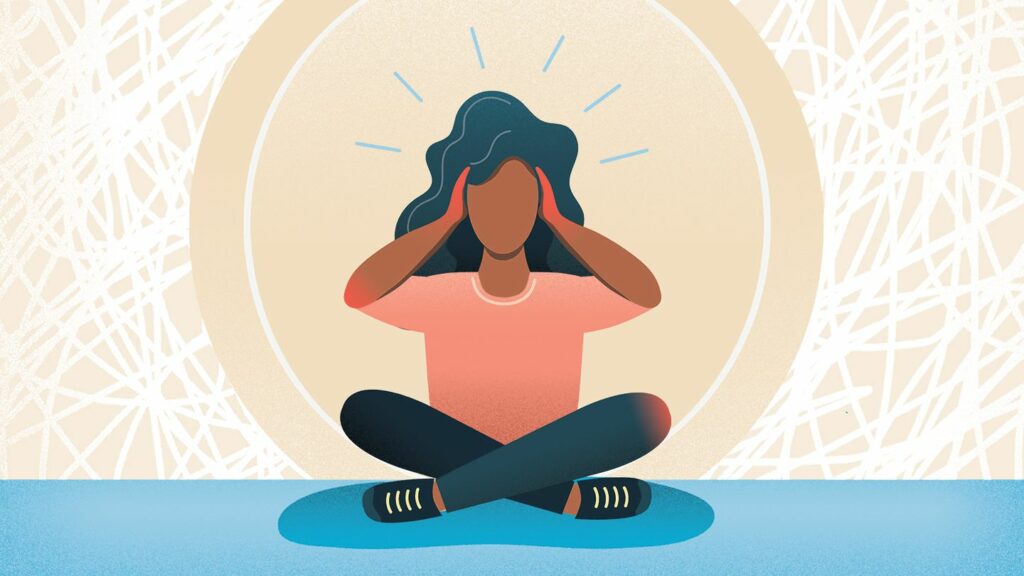It’s no secret that life can be stressful. Between tight deadlines, demanding bosses, and ever-changing priorities, it’s easy to feel overwhelmed and stressed out. Unfortunately, this stress can take a toll on our mental and physical health if we don’t find ways to manage it. In this blog post, we will discuss some tips for ways to reduce stress and creating a more relaxed office environment.
Contents
What Does “Stress” Mean?
 Stress means different things for different people. It can be feeling overwhelmed by your workload, or it can be feeling like you’re not able to take breaks during the day. It can also be feeling like you’re not being recognized for your hard work, or that your job is putting strain on your personal life. Whatever “stress ” means for you, there are ways to reduce the amount of stress you’re feeling.
Stress means different things for different people. It can be feeling overwhelmed by your workload, or it can be feeling like you’re not able to take breaks during the day. It can also be feeling like you’re not being recognized for your hard work, or that your job is putting strain on your personal life. Whatever “stress ” means for you, there are ways to reduce the amount of stress you’re feeling.
Stress also means that your body is physically responding to the demands of your job. When you’re stressed, your body releases cortisol, which is a hormone that helps you deal with stress. But when cortisol levels are constantly high, it can lead to health problems like heart disease, obesity, and anxiety.
There may also be many things outside of your control that contribute to stress. But there are still things you can do to reduce the amount of stress you’re feeling.
Negative Impacts of Stress

There are many negative impacts of stress. Some of these are:
Depression
Depression is one of the most common mental health disorders, and it can be caused by stress. It can lead to a loss of interest in activities, fatigue, and changes in appetite. It can also cause difficulty concentrating, and make you feel like you’re not able to cope with everyday tasks. There are also physical symptoms of depression, like headaches and body aches. Depression is also one of the most common reasons for absenteeism.
Anxiety
Anxiety is another mental health disorder that can be caused by stress. It can lead to feelings of worry, nervousness, and fear. It can also cause physical symptoms like sweating, trembling, and a racing heart. Anxiety can make it difficult to concentrate and make you feel like you’re not able to cope with everyday tasks. There are many different types of anxiety disorders, and they can all be caused by stress.
Panic Attacks
A panic attack is a sudden episode of intense fear or anxiety that can cause physical symptoms like a racing heart, shortness of breath, and dizziness. Panic attacks can also make it difficult to think clearly and can lead to a feeling of being detached from reality. Panic attacks are often triggered by stressful events, and they can be very debilitating.
Burnout
Burnout is a state of physical, emotional, and mental exhaustion that can be caused by prolonged or chronic stress. It can lead to feelings of cynicism, detachment, and apathy. It can also cause physical symptoms like fatigue, headaches, and body aches. Burnout can make it difficult to concentrate and make you feel like you’re not able to cope with everyday tasks. If you’re experiencing burnout, it’s important to seek help from a mental health professional.
Insomnia
Stress can also lead to insomnia, which is when you have difficulty falling asleep or staying asleep. Insomnia can make you feel tired during the day, and it can also lead to other health problems like depression and anxiety. It can also make it difficult to concentrate and make you feel like you’re not able to cope with everyday tasks. If you’re experiencing insomnia, it’s important to seek help from a mental health professional.
Physical Health Problems
There are also many physical health problems that can be caused by stress. These include:
High Blood Pressure
High BP is one of the most common physical health problems that can be caused by stress. This high BP can lead to heart attacks, strokes, and other health problems. It’s important to get your BP checked regularly and to seek help from a doctor if you think you may have high BP.
Heart Disease
Stress can also lead to heart disease. Heart disease is a condition that affects the heart muscle and can lead to heart attacks, strokes, and other health problems. If you think you may have heart disease, it’s important to seek help from a doctor.
Obesity
Stress can also lead to obesity. Obesity is a condition where someone has too much body fat, and it can lead to many different health problems. If you think you may be obese, it’s important to seek help from a doctor.
These are just some of the many negative impacts of stress. If you’re experiencing any of these, it’s important to seek help from a mental health professional.
Tips For Reducing Stress

There are many ways to reduce stress, and these tips can help you create a more relaxed office environment. There are many things you can do to reduce stress. Some of these are:
Find Supportive Community
One way to reduce stress is to find a supportive community. This could be a group of friends, family, or co-workers who understand what you’re going through and can offer support. This support can be in the form of listening to you, offering advice, or just being there for you. There can also be many things that can have a positive impact on your work life.
Get Organized
Another way to reduce stress is to get organized. This means taking the time to plan your day, week, and month. Having a plan can help you feel less overwhelmed and more in control of your work life. It can also help you stay on track and avoid missing deadlines. Being organized also makes it a lot easier to find things when you need them.
Seek Help From Mental Health Professionals
If you’re experiencing any of the negative effects of stress, it’s important to seek help from a mental health professional. They can help you identify the causes of your stress and offer solutions that can help reduce your stress levels. If you’re experiencing any of these, it’s important to seek help from a mental health professional.
Contact MantraCare for this professional help. This is an important step. We can help you to identify the problem and work on a solution that is best for you.
Set Boundaries
It’s also important to set boundaries with your work. This means learning to say no, and setting limits on how much work you’re willing to do. It’s also important to take breaks and to make sure that you’re not working all the time. Setting boundaries can help you feel less overwhelmed and more in control of your work life.
Take Care of Yourself
It’s also important to take care of yourself, both physically and mentally. This means eating healthy, getting enough sleep, and exercising. It also means taking time for yourself and doing things that make you happy. Taking care of yourself can help you feel less stressed and more able to cope with the demands of your work life.l
Take Breaks
It’s important to take breaks when you’re feeling stressed. Taking a few minutes to yourself can help you relax and recharge. You can use this time to do things that make you happy or just take some deep breaths. It’s important to remember that you can’t always be working, and taking breaks is essential for maintaining your mental health.
Talk To Your Boss
If you’re feeling stressed, it’s important to talk to your boss. They may be able to offer some solutions that can help reduce your stress levels. It’s also important to let them know how you’re feeling so they can be aware of the situation and offer support if needed. There can also be many things that can have a positive impact on your work life.
Try To Find The Positive
When you’re feeling stressed, it’s important to try to find the positive. This means looking for the good in your situation and focusing on the things that are going well. It can be easy to focus on the negative when you’re feeling stressed, but try to remember that there are also good things in your life. This can help you feel less stressed and more positive about your work life.
These are just some of the many ways to reduce stress. If you’re feeling stressed, it’s important to find what works for you and to seek help if needed.
Conclusion
Stress is something that we all have to deal with at one point or another. But it doesn’t have to be something that takes over our lives. By following the tips above, you can learn how to manage your stress and create a more relaxed office environment for yourself and your colleagues.
Stress also takes a toll on our personal lives. If we can find ways to reduce stress, we can improve our relationships with family and friends, and have more energy for the things we enjoy outside of work.
So take some time for yourself, and try out some of these tips to reduce stress. You may be surprised at how much better you feel. And your boss will probably appreciate it too.
For more information, please contact MantraCare. Stress can have both physical and mental effects on the body, leading to negative consequences such as anxiety, depression, and even physical illnesses. If you have any queries regarding Online Stress Counseling experienced therapists at MantraCare can help: Book a trial Stress therapy session


